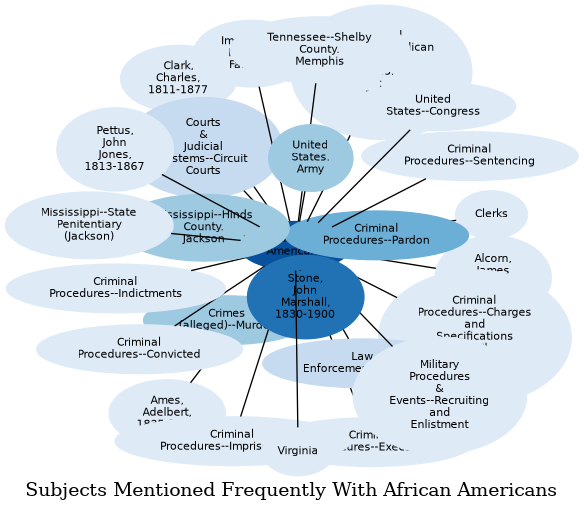Description
The Cambridge Dictionary classifies "a person who lives in the U.S. and is a member of a race of people with dark skin that originally came from Africa" as African American, but both the nineteenth-century and modern constructions are more complex (Cambridge Dictionary). Common nineteenth-century racial categories such as "mulatto" referred to persons with both white and black ancestry, and the experiences of mixed-race persons varied based on complexion, degree of African ancestry, and the region in which they lived. In antebellum cities with large populations of free Blacks, the degree of one's African ancestry could determine what rights one possessed or did not possess, and people with lighter skin tones were often considered to be white; this ended under "one drop rule" during the Jim Crow system.
Like skin tone, the ethnicity implied by the term "African American" is also problematically broad, as "naming people only by the continent of their origin and ignoring their ethnic identity is a consequence of time and space" (Painter, Creating Black Americans, 5). The experience of slavery complicated the term by attempting to strip people of their original distinct African ethnic identities such as Ibo or Ndongan, classifying all persons of African descent together under one term, infusing that term with negative connotation, and disregarding the complex and rich linguistic, cultural, and ethnic histories of varied African people. However, many Black Americans have reclaimed the term "African American" and infused it with positive connotations. One scholar argues that "in using the term 'African Americans,' Black Americans accent the part of their heritage that is not American" (Painter, Creating Black Americans, 4).
CWRGM — acknowledging the multiplicity of the term's meanings and connotations — includes multiracial and multiethnic people of African descent under the "African Americans" social identifiers subject tag to reflect the diversity of the African American experience and to ensure that the experiences of African Americans of mixed races and ethnicities are discoverable as they are rarely distinguished further in the letters. In the absence of other references, CWRGM also tags racial slurs targeted at African Americans — which were common in nineteenth century documents with white authors — under the "African Americans" tag. CWRGM recognizes the historic and present harm caused by such language and does not condone its use but tags these terms only to ensure the rich history of African Americans are discoverable within the collection.
See also: https://en.wikipedia.org/wiki/African_Americans
Related Subjects

The graph displays the other subjects mentioned on the same pages as the subject "African Americans". If the same subject occurs on a page with "African Americans" more than once, it appears closer to "African Americans" on the graph, and is colored in a darker shade. The closer a subject is to the center, the more "related" the subjects are.